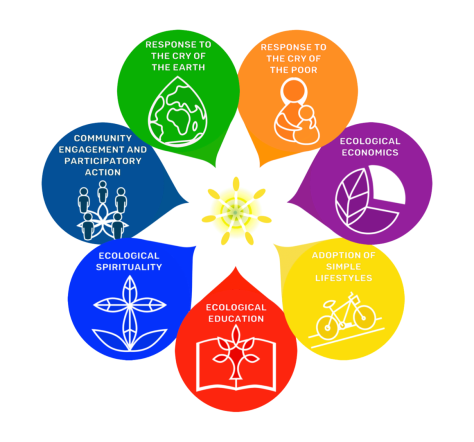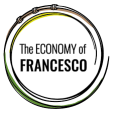Laudato Si’ Goals - LSGs
Measuring Integral Ecology in the spirit of Laudato Si’
1. Response to the Cry of the Earth (greater use of clean renewable energy and reducing fossil fuels in order to achieve carbon neutrality, efforts to protect and promote biodiversity, guaranteeing access to clean water for all, etc.)
2. Response to the Cry of the Poor (defence of human life from conception to death and all forms of life on Earth, with special attention to vulnerable groups such as indigenous communities, migrants, children at risk through slavery, etc.)
3. Ecological Economics (sustainable production, Fair-trade, ethical consumption, ethical investments, divestment from fossil fuels and any economic activity harmful to the planet and the people, investment in renewable energy, etc.)
4. Adoption of Simple Lifestyles (sobriety in the use of resources and energy, avoid single-use plastic, adopt a more plant-based diet and reduce meat consumption, greater use of public transport and avoid polluting modes of transportation, etc.)
5. Ecological Education (re-think and re-design educational curricula and educational institution reform in the spirit of integral ecology to create ecological awareness and action, promoting the ecological vocation of young people, teachers and leaders of education etc.)
6. Ecological Spirituality (recover a religious vision of God’s creation, encourage greater contact with the natural world in a spirit of wonder, praise, joy and gratitude, promote creation-centred liturgical celebrations, develop ecological catechesis, prayer, retreats, formation, etc.)
7. Emphasis on Community involvement and participatory actionto care for creation at the local, regional, national and international levels (promote advocacy and people’s campaigns, encourage rootedness in local territory and neighbourhood ecosystems, etc.)









